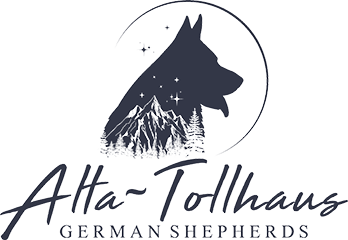Trusted friend and pet food investigator extraordinaire – Dr. Gary Pusillo – shares a concern about ergot alkaloid problems he is seeing in “some supplements and foods containing wheat middling’s and other wheat products.” Here is what ergot alkaloids are, and the risk they pose to pets.
First and foremost, I take every bit of information shared with me from Dr. Gary very seriously. He is – among many things – an animal feed forensic scientist and an extraordinary person/animal lover. His most recent communication to me stated “I have been seeing ergot alkaloid problems in supplements and foods containing wheat middling’s and other wheat products.” Dr. Gary was also concerned that many veterinarians would not know what they were seeing in a sick pet suffering from ergotism (disease related to the consumption of infected grains).
He also shares – and this is important – not everything wheat is contaminated with ergot. Please consider this warning as education to recognize the symptoms of a sick pet – just in case. This post is not intended to cause pet food consumers to avoid everything wheat.
What are Ergot Alkaloids?
‘Spurs’ of the ergot fungus (black) mixed with healthy barley kernels.
“The ergot alkaloids are mycotoxins produced by several species of fungi in the genus Claviceps.”
“Ergot poisoning in humans and domestic animals is known as ergotism. This disease may cause strange hallucinations, the feeling of itchy and burning skin, gangrene, loss of hands and feet, and even death. Ergotism is one of the oldest known human diseases caused by mycotoxins. In the Middle Ages, humans suffering from a disease called St. Anthony’s fire reportedly experienced symptoms that suggested ergot poisoning such as burning skin, insects crawling under their skin, and the loss of hands and feet.”
From Dr. Gary:
Ergot problems in dogs and cats
Ergot alkaloid toxicity is showing up in many species of animals; it often going misdiagnosed as a bacterial related problem. Most ergot problems are being reported from the use of contaminated wheat, and rye ingredients.
Both dogs and cats get sick very fast. High levels will cause convulsions, in-coordination, breathing problems, excessive salivation, and diarrhea. Pregnant dogs typically will abort their litter or give birth to still born puppies.
Milk secretion from nursing mothers can cease or become very reduced. Chronic exposure to ergot alkaloids will cause the tips of a dog’s ears and tail to become necrotic and fall off. Some dogs will develop pain in their paws and where their toe nails attach and they limp or find it difficult to walk.
It seems like cats will notice the contamination sooner and not eat their food. Detection by dogs and cats is dependent on the amount of flavor masking agents used to cover-up distressed ingredients.
Veterinary Medicine, Volume 17 states: “Acute poisoning is characterized by vomiting (in dogs) profuse salivation, dilation of the pupils, rapid breathing and frequent pulse.” (It can be safely assumed cats would suffer similar symptoms of acute poisoning.)
Dr. Gary shares that it is important to keep a pet’s immune system healthy “primed for times of crisis. Over 65% of animal’s immune cells reside in the digestive tract.” Providing your pet quality probiotic and prebiotic supplements can protect your pet not only against the possibility of ergot contamination in a food or treat, but many other issues as well.
Wikipeida explains “The gut is home to billions of microorganisms. Nutrition must not only provide the necessary nutrients, it must also support a balanced microflora.”
Again, do not have the belief that all wheat or rye ingredients are contaminated with ergots. But please be aware the possibility could occur. The information provided here is to alert you to the potential of ergot contamination, educate you to recognize the signs, and aid your veterinarian in diagnosis should your pet become ill. As well, please become proactive working with your veterinarian using nutrition to improve your pets immune system.
Last but not least – please ‘listen’ to your pet. Often they know far more than we give them credit for. If they refuse a food, perhaps – again perhaps – it is because the food is contaminated with some type of toxin we cannot see or smell. ‘Listen’ to their refusal. Remove the food and feed them something else. For me, if a not so hungry pet (as opposed to a pet that is so hungry they would eat anything) refuses the food a second time – the rest of that bag or can of pet food will not be offered again. It could be just a matter of taste – the pet doesn’t like the taste or flavor of that pet food. But it could also be something more serious. Since we don’t know which it is for certain, I always side with caution.


Thank you for posting this. I am with you on the, “I’m not eating that” look from dogs who eat everything. There is a reason for the refusal and it is not worth the risk.